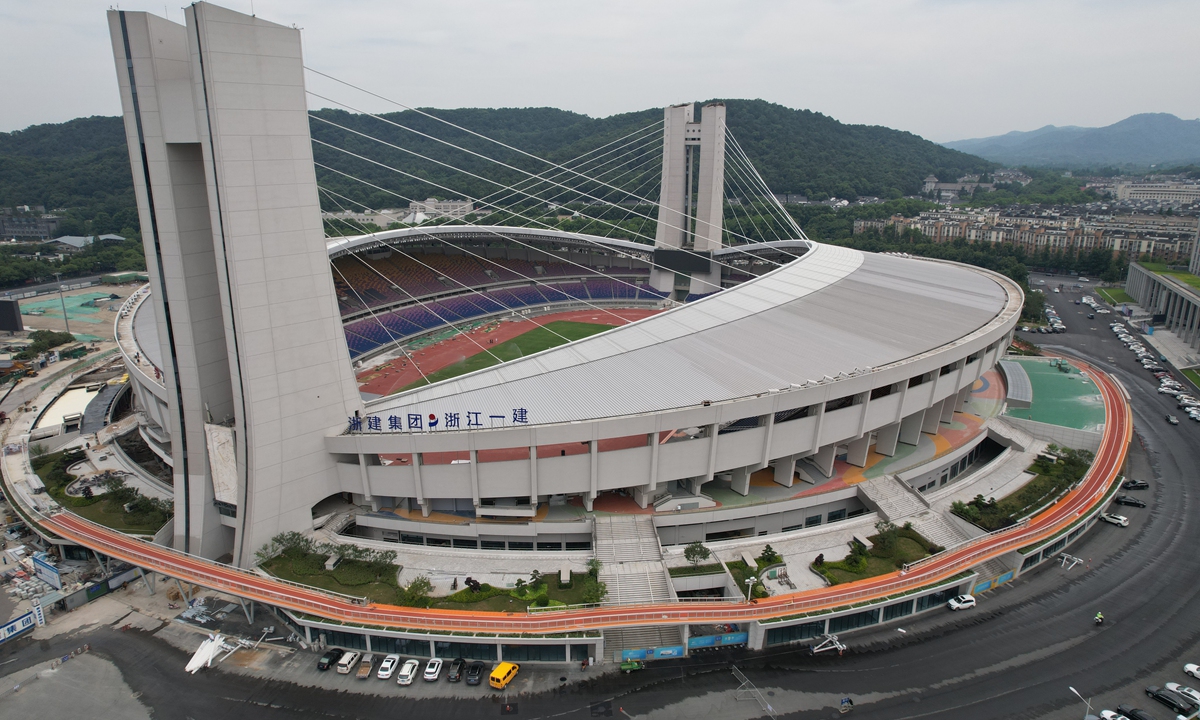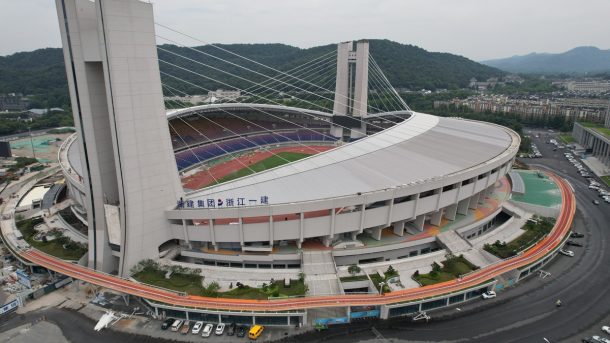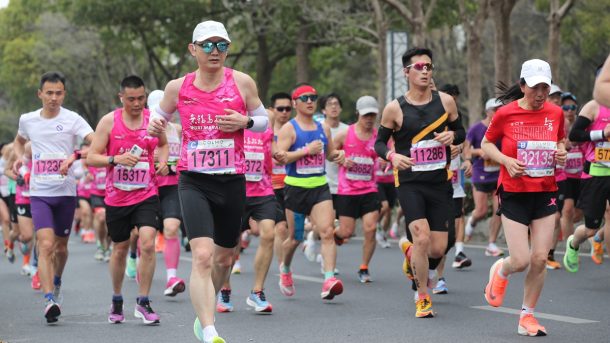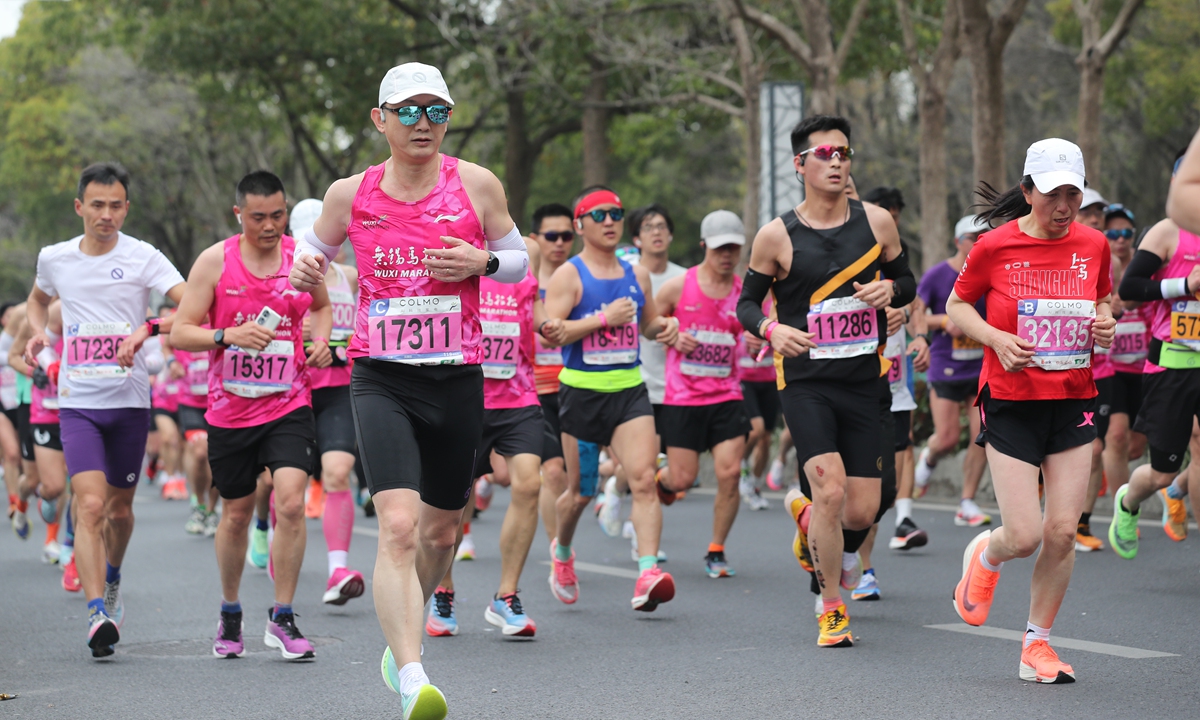
The Huanglong Stadium in Hangzhou, East China’s Zhejiang Province which will host the CFA Super Cup on April 8, 2023. Photo: VCG
In a surprising move that has garnered applause from soccer fans, the Chinese Football Association (CFA) introduced what many are dubbing the “Messi clause” in a recent revision of regulations for the administration of international soccer events.
The highlight of these new regulations is the requirement for sports event organizers to provide comprehensive ticketing terms, including disclosure of star players’ appearance terms and the consequences of breach of contracts before ticket sales commence.
This development comes in the wake of incidents involving high-profile soccer stars such as Lionel Messi of Argentina and Cristiano Ronaldo of Portugal, who left fans disappointed when they pulled out of matches due to injuries.
Messi’s absence during a match in Hong Kong – though technically the match was under the Hong Kong FA’s purview rather than the mainland CFA’s – and Ronaldo’s cancellation of two friendlies in Hong Kong’s neighboring city of Shenzhen due to injuries had sparked widespread criticism and protests from disappointed fans. These incidents underscored the need for greater accountability and transparency in commercial-oriented matches.
Though the CFA is still recovering from the corruption cases involving the previous administration, this proactive approach to address these issues demonstrates the commitment to promoting the standardization of soccer commercial events and safeguarding the interests of soccer fans. By requiring organizers to disclose crucial information regarding star players’ participation upfront, the CFA aims to prevent similar controversies from occurring in the future.
The implementation of these regulations is a significant step toward enhancing transparency and accountability in commercial soccer events. By ensuring that fans are informed about the terms of player appearances and the remedies available in case of breaches, the CFA is empowering consumers and fostering a fairer environment for soccer enthusiasts.
Moreover, these regulations are expected to incentivize event organizers to draw up more rigorous and detailed contracts with participating teams and players. The requirement for the disclosure of player appearance terms will compel organizers to enter into agreements that clearly outline the expectations and responsibilities of all parties involved.
In addition to holding event organizers accountable, these regulations also raise the bar for the quality and professionalism of commercial soccer events in China. By setting clear standards and expectations, the CFA is pushing for a higher level of integrity and professionalism in the organization and execution of such events.
Furthermore, the introduction of these regulations reflects the CFA’s responsiveness to feedback and its willingness to adapt to changing circumstances. By addressing loopholes and shortcomings identified in past incidents, the CFA is demonstrating its commitment to continuous improvement and innovation in soccer governance.
Overall, the “Messi clause” represents a positive development for the soccer industry in China.
By prioritizing the interests of fans and promoting greater transparency and accountability, the CFA is laying the groundwork for more sustainable and reputable commercial soccer games. As the soccer market continues to grow and evolve, these regulations will play a crucial role in shaping the future of commercial soccer events in China.


